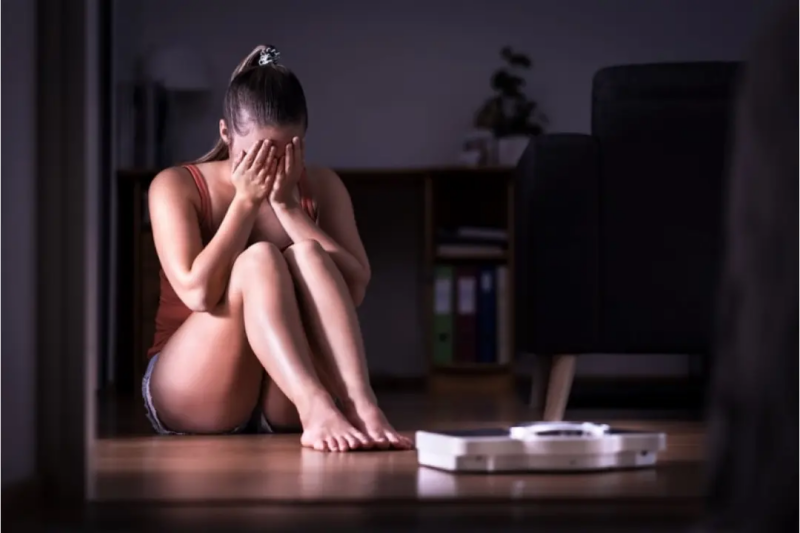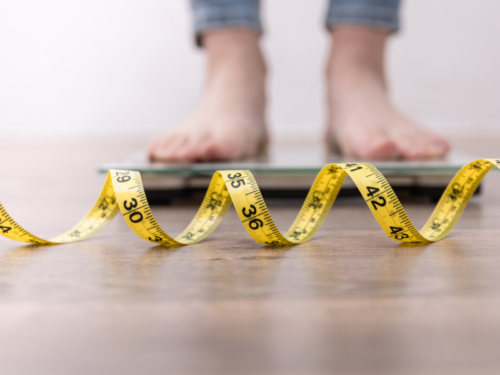
Table of Contents
How to Talk to Your Child About Body Image
Written By: Charlie Health Editorial Team
July 1, 2021
4 min.
A healthy body image is an essential aspect of a young person’s self-esteem and self-worth. Significantly, body image is about how you perceive your body, not about what your body looks like. This image is often affected by pressures of friends, family, celebrities, and social media. Fostering a healthy body image at a young age is critical. The National Association of Anorexia Nervosa and Associated Disorder reported that approximately 95% of individuals struggling with eating or related disorders are between the ages of 12-25.
Learn more about our Clinical Review Process
Table of Contents
How to talk about body image with your teen
A healthy body image is an essential aspect of a young person’s self-esteem and self-worth. Significantly, body image is about how you perceive your body, not about what your body looks like.
This image is often affected by pressures of friends, family, celebrities, and social media. Fostering a healthy body image at a young age is critical. The National Association of Anorexia Nervosa and Associated Disorder reported that approximately 95% of individuals struggling with eating or related disorders are between the ages of 12 – 25.
Adolescent bodies are constantly changing, and such changes can be overwhelming and feel unnatural. It is important to remind your child as their body continues to grow over time that changes are healthy and normal. Healthy body images aren’t created overnight—it’s important to be patient and understand that fostering a healthy environment for your child to love their body can take time.
It’s critical to address issues with body image as early as possible, promoting positive perceptions of beauty and the body throughout an individual’s youth. Negative body images can harm proper nutrition, causing young people to restrict their diet and develop long-term health challenges. Significantly, body image issues can affect the cognitive development of a young person.
Join the Charlie Health Library
Get mental health updates, research, insights, and resources directly to your inbox.
You can unsubscribe anytime.
While everyone has moments of being self-critical and wishing they could look or perform a certain way, it’s essential to recognize when these signs become dangerous and intervention is necessary.
Take small steps on a regular basis
If your child is struggling with body image issues, it’s important to not overwhelm them with information or judgment. Instead, try taking small steps each day towards fostering a relationship in which your child feels comfortable enough to have an open and honest conversation. Don’t try to force a conversation they may not be ready to have because this may cause them to retreat even more. Showing your support in small ways is critical and will have the greatest impact in the long run.
Be a good role model
Remember to practice what you preach! Be mindful of your language when discussing others’ bodies. Young people are able to pick up on small nuances of conversations and internalize it. Even seemingly innocent comments about celebrities’ bodies can communicate to your child an unrealistic standard of the body. Ensure you are projecting a positive body image yourself and when speaking about others in order to foster a healthy environment at home.
Advocate for healthy amounts of physical activity
Exercise is important for mental and physical well-being. Try incorporating regular physical activity into your family’s routine—this can be as simple as going for walks together. Physical activity is a great opportunity to bond with your family and have open conversations. Healthy levels of exercise, however, are key. Some individuals struggling with body image issues tend to overemphasize physical activity. Dedicate time to a healthy activity, but also set boundaries for when exercise becomes overemphasized.
Recognize when greater intervention is needed
Oftentimes, unhealthy body images can stem from challenges at school. If you think your child may be struggling as a result of unhealthy friendships or bullying, it’s important to have a conversation with your child’s teacher or school counselor about what’s going on. Checking in with the school is a great resource to ensure that you are appropriately understanding the challenges your child may be facing.
Set boundaries with devices
Research has shown social media to have a profound effect on a child’s mental health. Spending too much time focused on others’ bodies that are often times edited and curated can promote unhealthy standards of the body. It’s important to set boundaries for your child’s social media use to allow them to find happiness offline.
Do you need more support with
your mental health?
Charlie Health can help.
Know when your child may need additional support
Unhealthy perceptions of body image can quickly escalate to serious mental health issues. There is no shame in seeking support or asking professionals whether additional support is needed. Some signs of escalating body image issues include extreme fitness habits, restrictive eating, obsessive self-scrutiny, constant comparison to unrealistic beauty and body standards, or frequent attention to fluctuation in weight and appearance.
At Charlie Health, our goal is to ensure the effective delivery of care for all clients. As such, we are unable to accept clients with any eating disorder as a primary diagnosis at this time.
Contact us
Seeking support from professionals is essential if you are concerned for your child or a loved one. Supported groups are a proven medium for dealing with mental health challenges such as unhealthy body image perceptions. Charlie Health provides personalized, virtual mental health treatments so you can heal from the comfort of your own home. To speak with one of Charlie Health’s licensed professionals, call today and find out which treatment program may be right for you.





